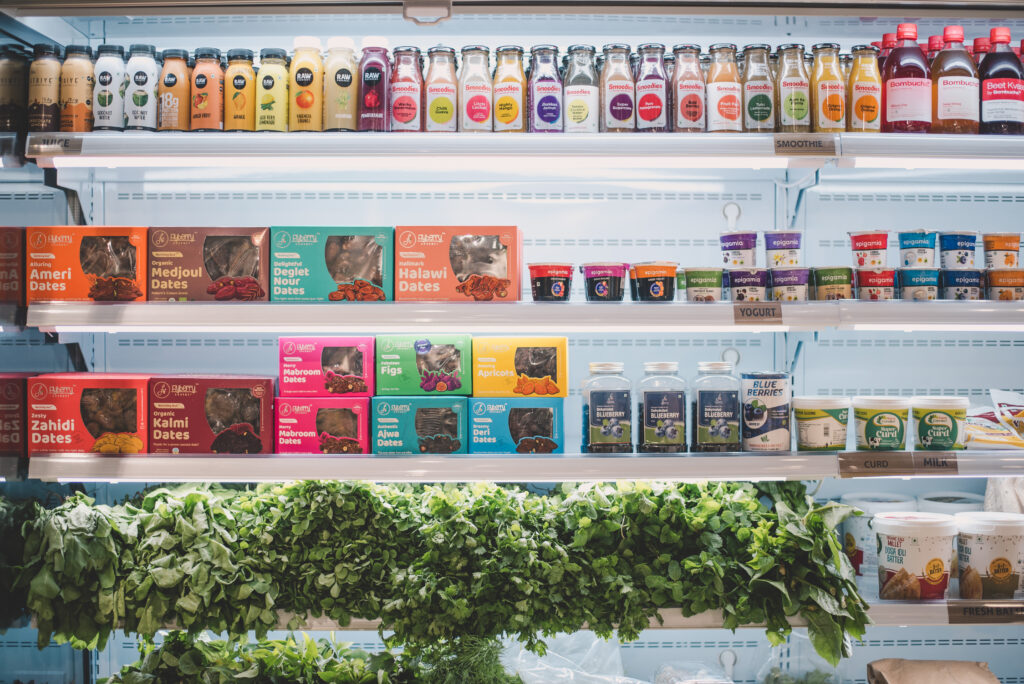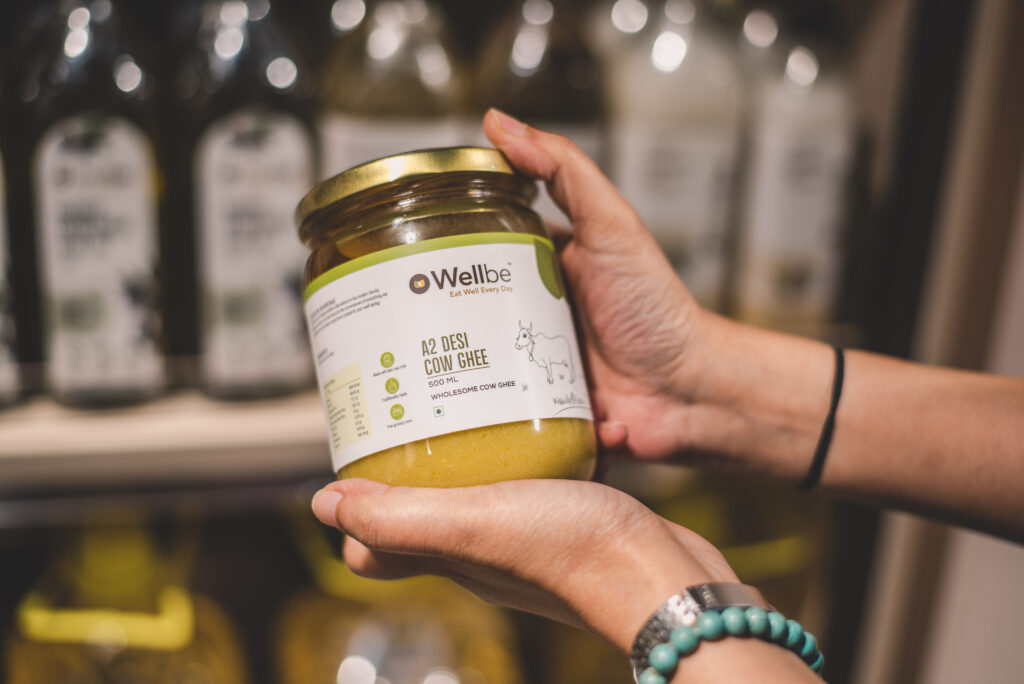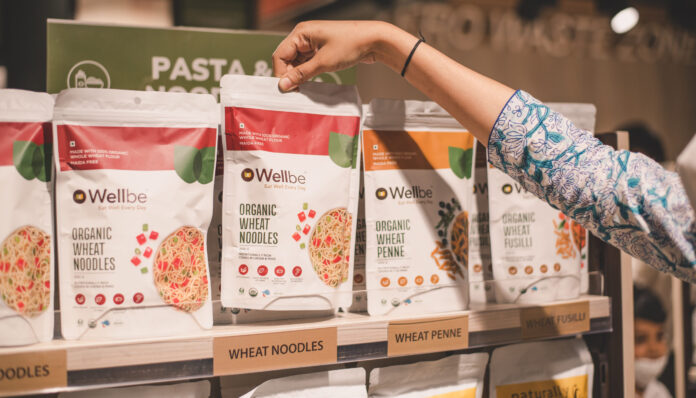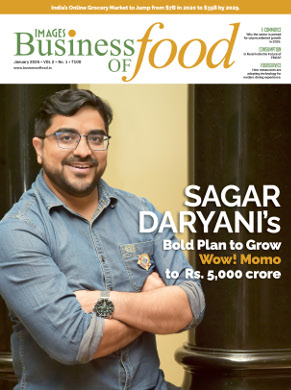As health-conscious and sustainability-focused lifestyles gain momentum in India, The Organic World has positioned itself as more than just a retailer – it is emerging as an industry pioneer. Combining aggressive expansion with innovative offerings like plant-based homecare products and clean-label snacks, the brand is carving a niche in a competitive landscape. Gaurav Manchanda, Founder & Director, offers an extensive insight into how The Organic World is transforming the retail landscape, one chemical-free product at a time.
Driving Exceptional Growth
Over the past two years, The Organic World has witnessed remarkable growth exceeding 100%. This aggressive scaling has enabled the brand to cater to the surging demand for chemical-free products across urban India, providing consumers with easy access to curated, wholesome groceries that resonate with the rise of health-conscious living.
In tandem with its geographical growth, The Organic World has embraced product innovation to solidify its market presence. The introduction of the Osh line, alongside the expansion of WellBe Foods into distinctive snacks underscores the brand’s ability to merge tradition with modern consumer tastes.
Consumer education remains central to TOW’s philosophy, fostering trust and transparency through insightful marketing campaigns and thoughtfully curated products. Positioned as authentic, accessible, and affordable, the brand continues to lead the way in chemical-free living, blending innovation with sustainability to meet the needs of today’s discerning shoppers.
Balancing Scaling with Consistency

For The Organic World, scaling operations is not merely about expanding its footprint; it’s about achieving growth while uncompromisingly upholding its core ethos of providing “worry-free, wholesome, curated groceries.” With an ambitious target of 100 stores or Rs. 100 crore in revenue by FY26, the brand has meticulously designed a framework that prioritizes consistency, quality, and transparency across its expanding network.
Central to this strategy is a robust operational infrastructure. Standardized processes across sourcing, stocking, and customer engagement ensure a uniform and exceptional experience for every customer. The “Not In Our Aisle” list – an industry-leading initiative banning over 25 harmful chemicals and ingredients – serves as the cornerstone of this commitment. This rigorous curation guarantees that every product aligns with the brand’s promise of providing wholesome, trustworthy options.
Employee empowerment is paramount. Store teams are meticulously trained to become experts in chemical-free living, enabling them to provide authentic and insightful guidance. Transparent communication regarding product origins, benefits, and offers also fosters trust and builds lasting customer relationships.
The supply chain further reflects the brand’s values. Partnerships with ethical organic farmers and suppliers ensures ethical sourcing. Advanced technology optimizes inventory management and supply chain efficiency, guaranteeing consistent product availability while minimizing waste.
Overcoming Barriers in the Organic Market
India’s organic market, while promising, faces several challenges that hinder its growth and accessibility. One of the most pressing issues is limited market access, particularly for small and marginal farmers. Without strong distribution networks, these producers often struggle to connect with consumers and sell their products at fair prices.
Another major hurdle is the high cost of certification and compliance. The presence of multiple certification systems creates confusion and drives up expenses, making organic products less affordable for consumers. This issue is exacerbated by widespread skepticism about the authenticity of organic claims, fueled by concerns over “greenwashing.”
Supply chain complexities further add to the challenges. Organic farming requires strict segregation from conventional farming practices, which increases logistical and processing costs. This added complexity not only impacts operational efficiency but also raises the end cost of organic products, limiting their appeal to price-sensitive consumers.
Addressing these barriers requires a collaborative approach among industry stakeholders. Farmer Producer Organizations (FPOs) can play a pivotal role by reducing aggregation costs, providing collective bargaining power, and improving market access for small farmers. Streamlining and standardizing certification processes can help lower costs and build consumer confidence. Investments in infrastructure, particularly in supply chain and processing facilities, can address logistical challenges and ensure consistent product availability. Additionally, targeted consumer education campaigns can dispel skepticism by highlighting the authenticity and benefits of organic products.
Transformative Trends Shaping the Future
The organic and clean-label sectors are undergoing a significant transformation, driven by two pivotal trends: the adoption of regenerative agriculture and the integration of blockchain-based traceability systems.
Regenerative agriculture represents a paradigm shift from conventional organic farming by emphasizing restoration over sustainability. This approach focuses on improving soil health, enhancing biodiversity, and sequestering carbon, addressing the dual challenges of environmental degradation and climate change. By incorporating regenerative practices into their supply chains, brands can not only enhance the quality and yield of organic produce but also build stronger consumer trust through demonstrable contributions to environmental restoration.
Simultaneously, advancements in blockchain technology are redefining transparency and accountability in the organic sector. Blockchain-enabled traceability provides real-time insights into product journeys from farm to fork, ensuring authenticity and minimizing the risk of fraud. This innovation addresses growing consumer demands for clear, verifiable information about the origins and purity of organic products, elevating the credibility of clean-label claims.
The convergence of regenerative agriculture and blockchain technology is poised to address critical industry challenges, including sustainability, traceability, and consumer trust. As these practices become integral to the organic market, they will not only drive the sector’s growth but also set new benchmarks for ethical and sustainable food production, ensuring a resilient and future-ready industry.
Opportunities and Challenges in Vegan Offerings

The rise of plant-based and vegan diets presents a significant opportunity in India, but not without challenges. The Organic World aligns its product portfolio with global dietary trends, introducing millet snacks, spinach noodles, gluten-free flours, and oat milk to cater to evolving consumer preferences. While these additions tap into the growing demand for cleaner, healthier food, they also present challenges unique to the Indian market.
However, increasing health consciousness and a shift toward sustainable, ethical consumption are driving demand. By leveraging digital platforms and educational campaigns, brands can make plant-based options more accessible and appealing, bridging the gap between aspiration and affordability.
Balancing the premium pricing of such products with the affordability expectations of a diverse consumer base, especially in smaller cities, remains a key hurdle. Additionally, consumer awareness around the benefits of these offerings is still nascent, making education an essential component of market penetration.
By emphasizing quality, transparency, and innovation, The Organic World aims to position these aspirational products as accessible mainstream choices. The brand seeks to make these products both desirable and affordable, thereby expanding its reach and fostering greater adoption among Indian consumers.
Collaborative Efforts for Accelerating Growth
Partnerships between retailers, policymakers, and technology providers are essential to advancing the organic movement in India. Retailers can collaborate with policymakers to establish clear regulations, incentives, and support systems for organic farming and clean-label standards. Meanwhile, technology providers can develop digital platforms to streamline supply chains, enhance product traceability, and provide consumers with transparent access to product information. Such collaborations can reduce costs, improve operational efficiency, and foster greater consumer trust. By aligning efforts across these sectors, India can expand product availability, promote sustainability, and make organic offerings more accessible and affordable.
Shaping the Retail Landscape
The Organic World is expanding its product range to align with global dietary trends, introducing items like millet snacks, spinach noodles, gluten-free flours, and oat milk. While these innovations cater to the growing demand for healthier options, they also bring challenges specific to the Indian market.
Despite hurdles, rising health consciousness and a shift toward sustainable, ethical consumption offer immense opportunities. The Organic World is positioning these aspirational products as accessible mainstream choices, focusing on quality, transparency, and innovation. By leveraging digital platforms and educational campaigns, the brand aims to make these products both desirable and affordable, paving the way to expand its market and foster healthier consumption habits across India.
Inspiring Ambitions

As a founder of a leading organic brand like TOW, Manchanda emphasizes the importance of transparency for emerging players in the organic and clean-label market. He believes that in today’s conscious and discerning consumer landscape, trust is built through honesty in sourcing, labeling, and production practices.
“Consumers want more than just an ‘organic’ label—they want to understand the story behind it,” Gaurav explains. He advises brands to be open about where their products come from, how they are made, and what makes them unique.
According to Gaurav, focusing on quality, sustainability, and ethical practices, and clearly communicating these values, is key to standing out. “Transparency fosters trust, and trust cultivates loyalty,” he says. “In the long run, trust becomes your most valuable asset.”



